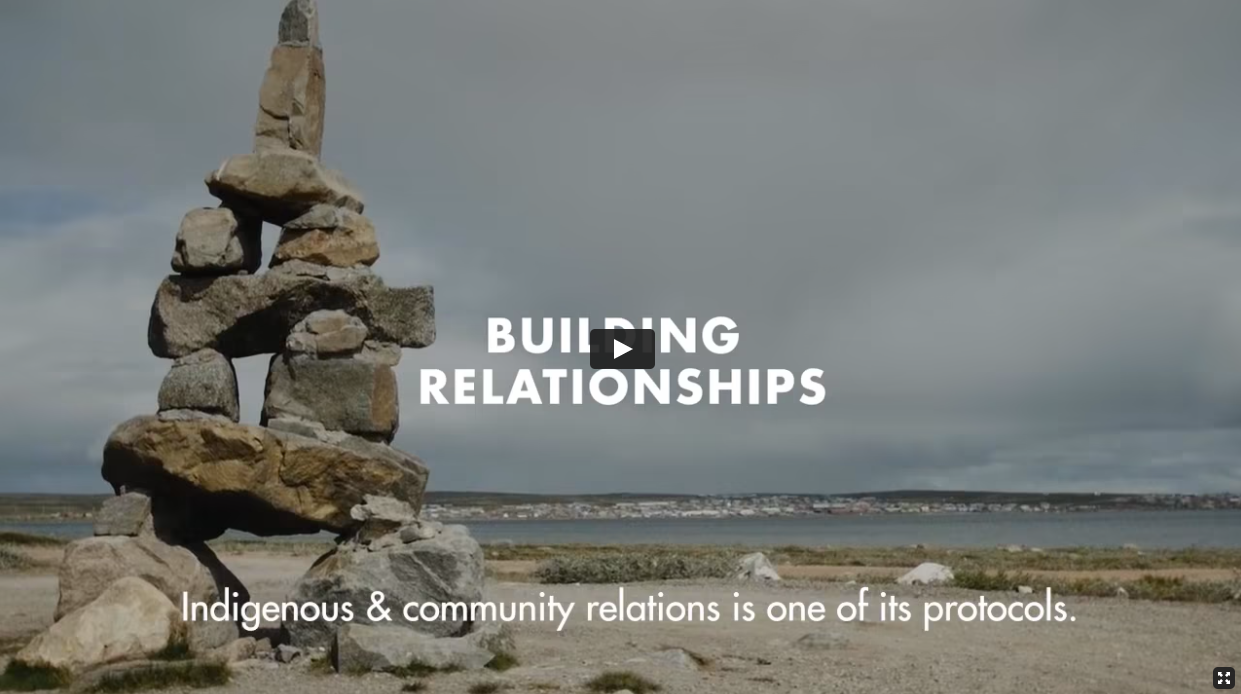More than any other sector, Canada’s mining industry has prioritized building and maintaining respectful, strong and trusting partnerships with communities impacted by, or with an interest in, mineral exploration and mining activities.
From exploration to mine closure, the mining sector engages with communities, including Indigenous peoples, impacted by their projects in order to share information and to collaborate on issues related to environmental effects, monitoring and cultural protection. The industry also focuses on developing partnerships and initiatives that generate economic opportunities and wealth for surrounding communities.
The sector further supports Indigenous participation through training, business development, employment, social investments and procurement. As a result of its efforts, the mining industry has become the largest private-sector industrial employer, on a proportional basis, of Indigenous peoples in Canada and a trusted partner of Indigenous businesses. There are currently over 500 active agreements between mining companies and Indigenous communities.
Mining Association of Canada (MAC) members’ commitment to ongoing engagement and maintaining respectful relationships with Indigenous communities is further demonstrated through participation in Towards Sustainable Mining (TSM). In December 2019, MAC adopted a new TSM Indigenous and Community Relationships Protocol – a comprehensive update to the TSM Aboriginal and Community Outreach Protocol. The first public reporting on the new Protocol will take place in 2022, using 2021 performance data.
The Indigenous and Community Relationships Protocol consists of five performance indicators.
These indicators seek to confirm that:
- processes are in place to identify communities of interest, including Indigenous communities and organizations
- processes have been established to support the development and maintenance of meaningful relationships with communities of interest
- mining facilities are actively building meaningful relationships and implementing engagement and decision-making processes with Indigenous communities
- processes have been established to mitigate adverse community impacts and optimize social benefits generated from facilities
- processes are in place to respond to incidents, concerns, and feedback from communities of interest
The revised protocol raises the bar on facility performance by strengthening criteria across indicators. It also features new indicators on effective Indigenous engagement and dialogue, as well as community impact and benefit management.
Among other criteria, good practice under the new Protocol includes:
- a demonstrated commitment to aim to obtain the Free, Prior and Informed Consent of directly affected Indigenous peoples for new projects and expansions where impacts to rights may occur
- response to the Truth and Reconciliation Commission of Canada’s Call to Action 92 iii, which calls for the corporate sector to provide education and skills-based training for managers and staff in areas such as Indigenous history and intercultural competency
- implementation of leading engagement processes designed to build meaningful relationships
- stronger commitments to collaborate with communities of interest, including in the management of impacts and benefits, engagement processes, and other areas



